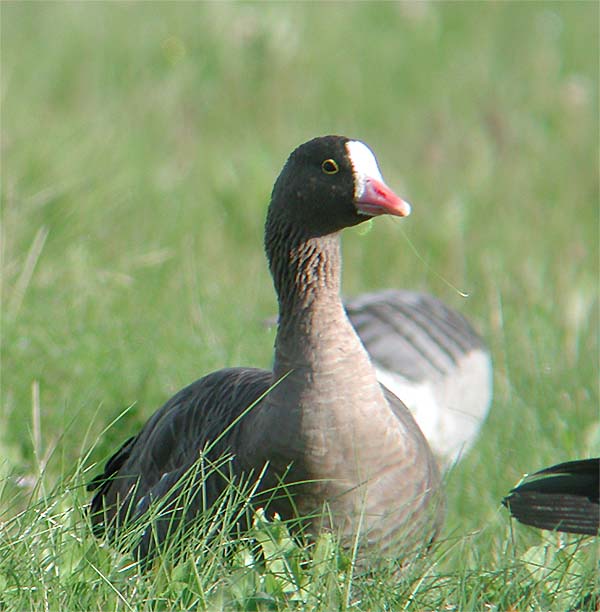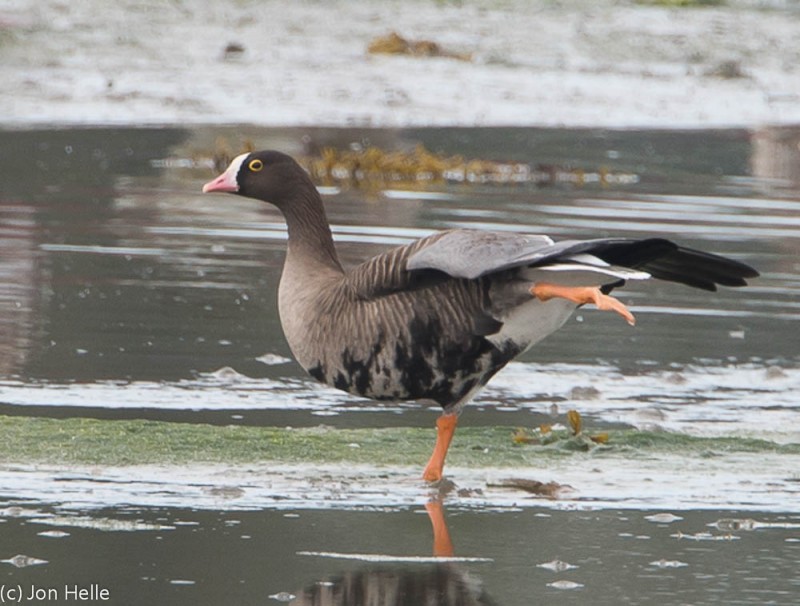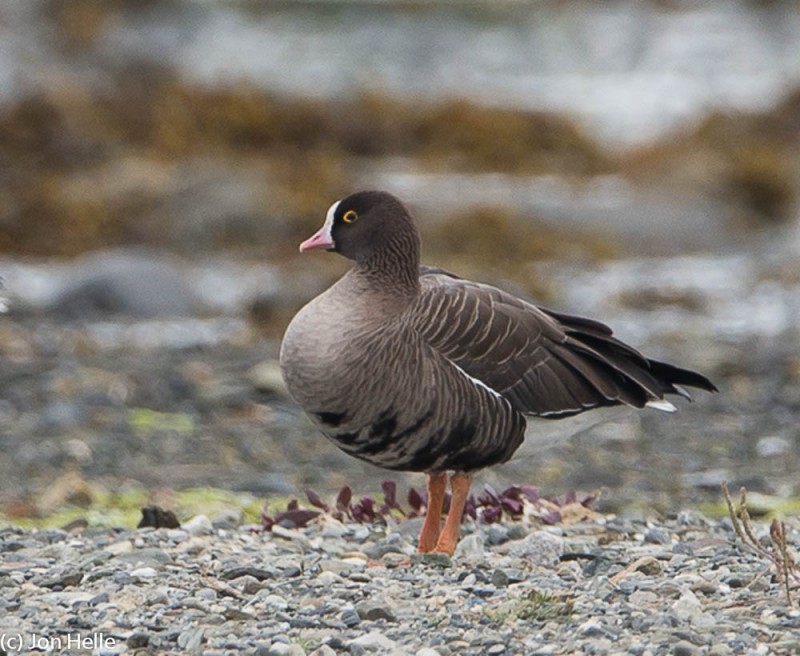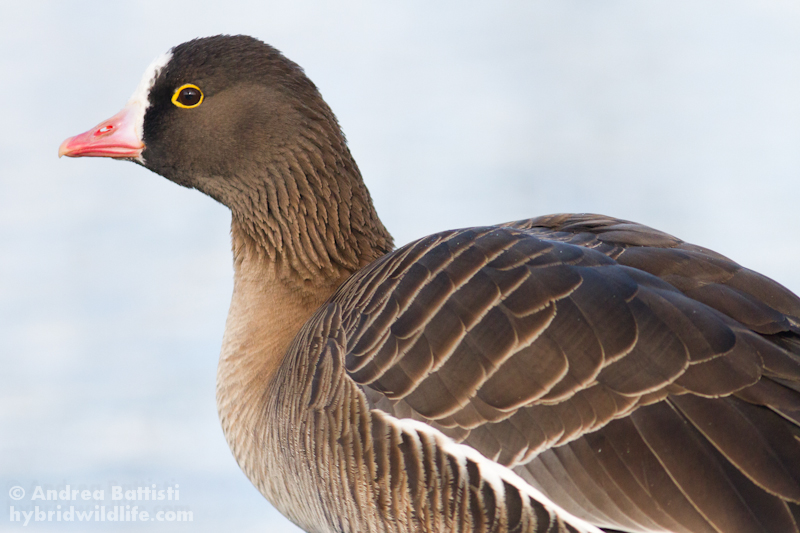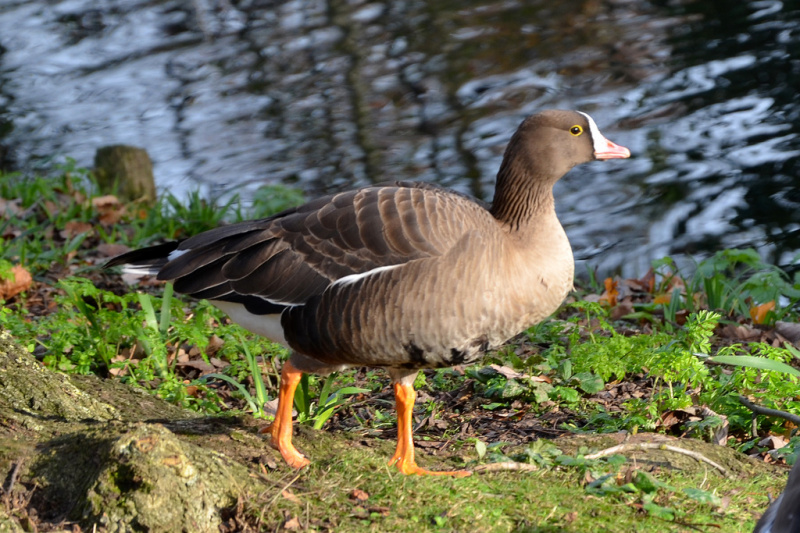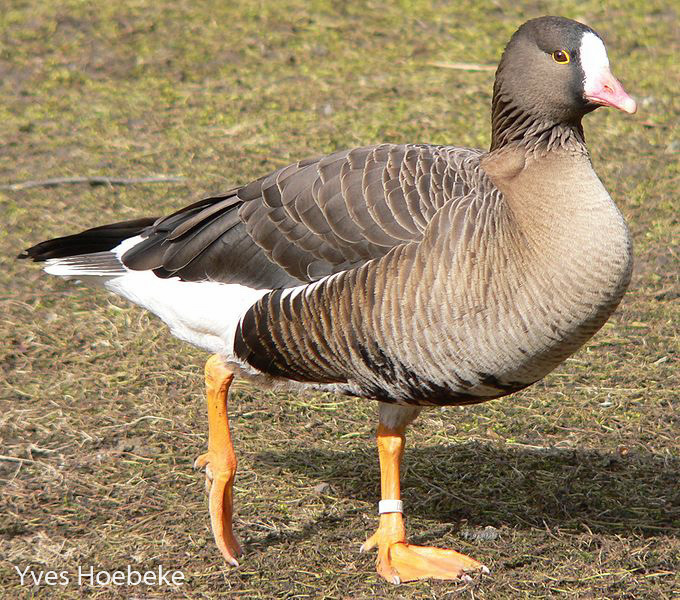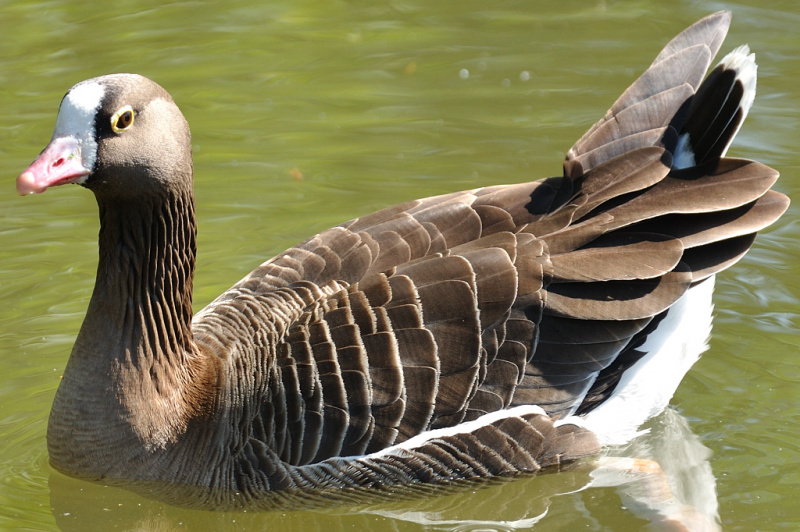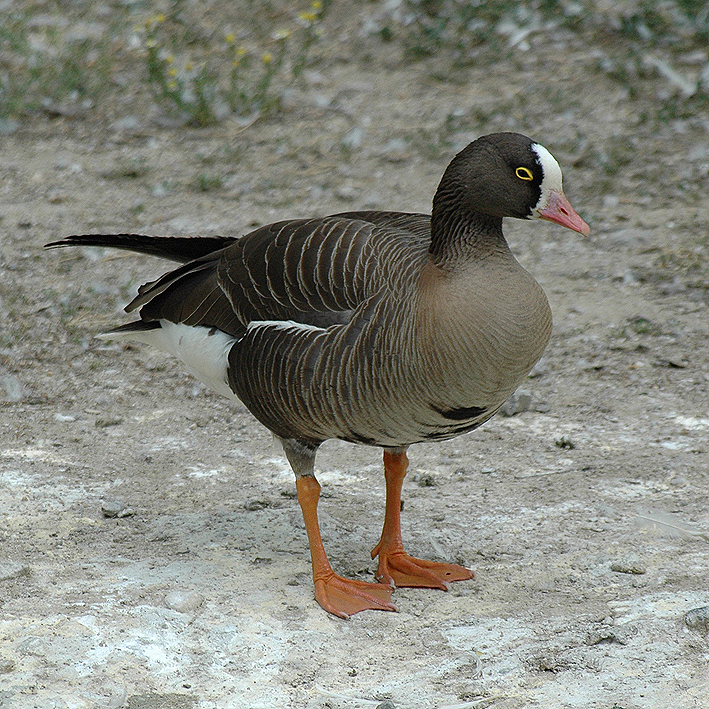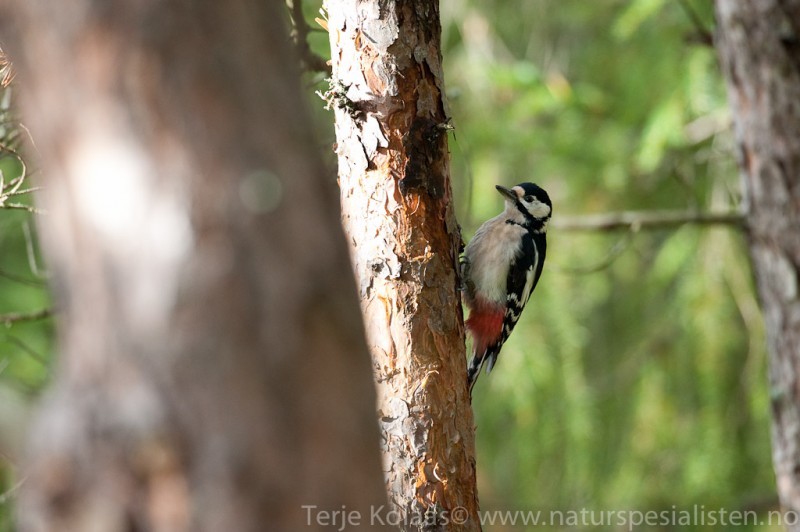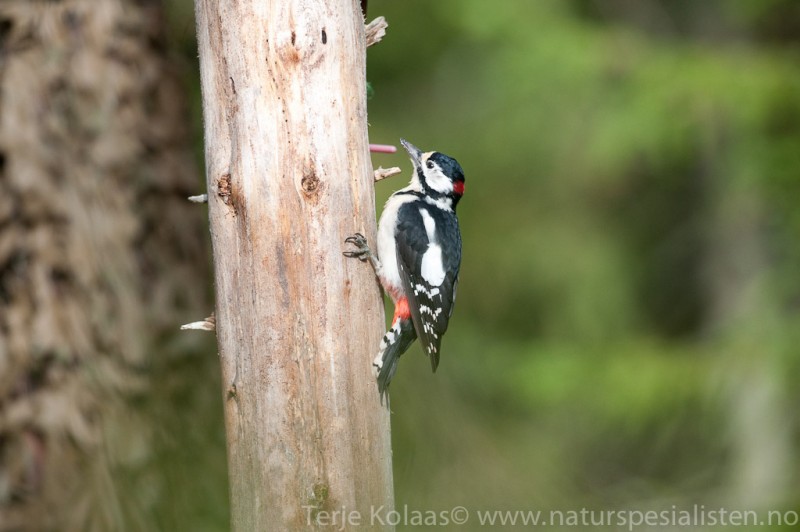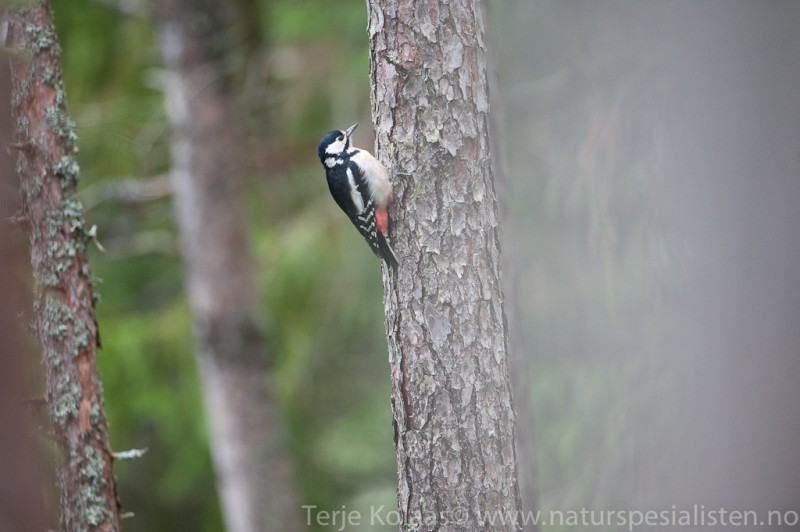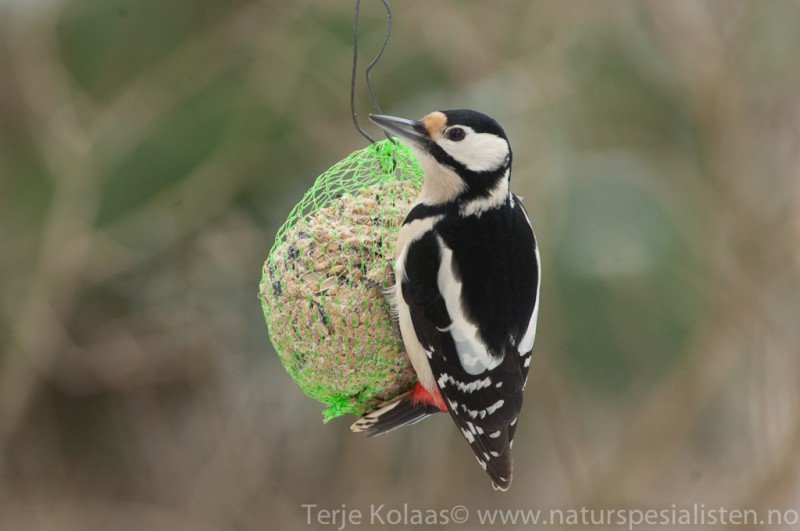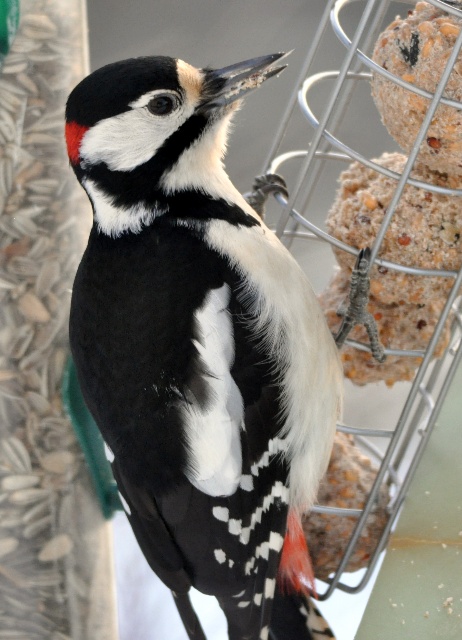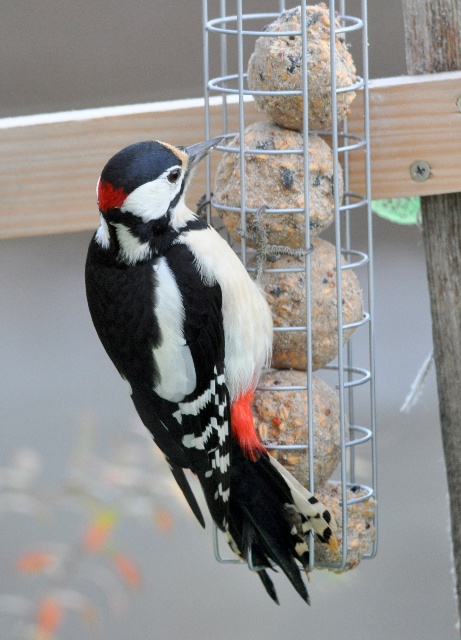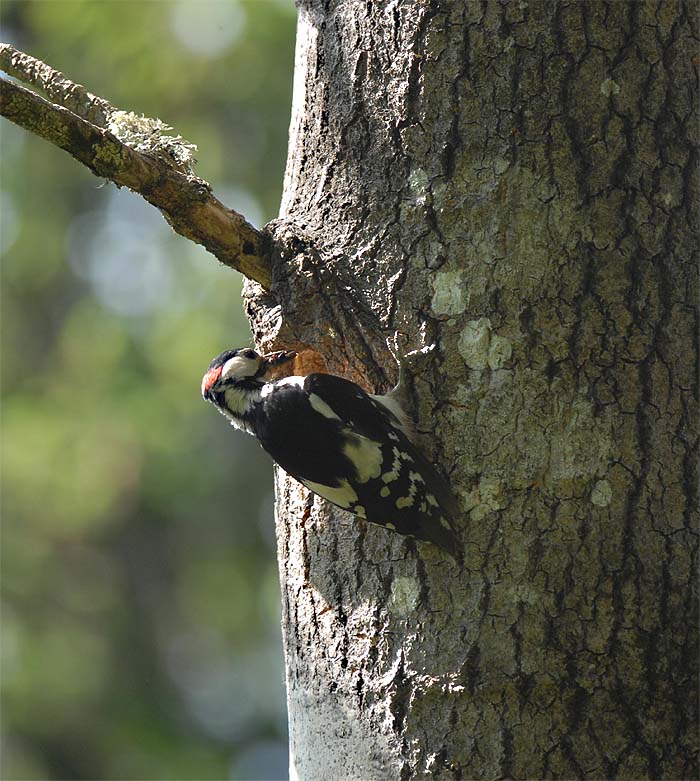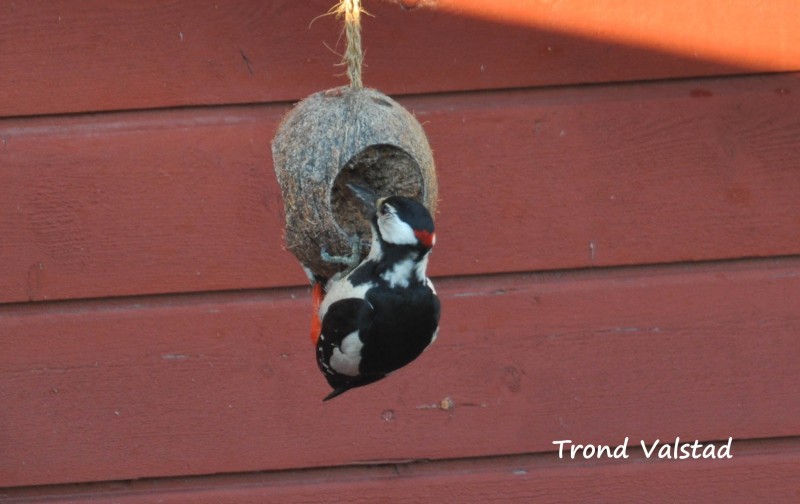Lesser White-fronted Goose (Anser erythropus)
Great Spotted Woodpecker (Dendrocopos major)
Adults with white front of head reaching crown, black markings on belly and obvious, swollen yellow eye-ring. Juveniles lacks white forehead and black markings on belly. The yellow eye-ring is also less noticeable. Note that White-fronted Goose may also show faint eye-ring, limited belly-markings and extended white front to head. Leaves a more "pure" impression than White-fronted, with evenly coloured plumage, rounded body, short neck, short bill and steep forehead. Primaries are longer than in other geese, and may extend past tail.
Sound:Contact call a characteristic, trisyllabic, yelping "ka-dyl-lyt". First syllable often with a goose-like timbre, and second and third a continuous clearer sound, with a rapid lowering of pitch between syllables. Much higher pitched than other grey geese.
Contact call:
Distribution:
Wikipedia: map (se also Xeno-canto below)
Ecology:Birdlife ecology
Links:
Observation.org Latest observations
Image search Flickr NB! May give other species
CCCC-photo:Stefan Berndtsson, Licence,Link.
CC-photo:Sibylle Stofer, Licence,Link.
CC-photo:Fenners1984, Licence,Link.
CC-sound:Antero Lindholm. Accessible at www.xeno-canto.org/243944.
Pied, medium sized woodpecker with strong bill, and diagnostic elongated white shoulder patches (scapulars). Vent always red. Male with red hindneck, female shows no read on head. Juveniles with whole crown red, barred scapulars and pinkish vent. Differs from Syrian- and Middle Spotted Woodpecker in long moustache stripe connecting to both black nape and base of bill. Flight strongly undulated with alternating burst of wing-beats and glides with closed wings.
Sound:It's frequent drumming is easily recognized by its short duration. Typically it lasts 0.5 seconds, sometimes slightly longer. Contact call frequently hear throughout the year. A short hiccup "kek", sometimes in series. When excited this may escalate into a trill.
Contact call, alarm call, drumming:
Distribution:
Wikipedia: map (se also Xeno-canto below)
Ecology:Birdlife ecology
Links:
Observation.org Latest observations
Image search Flickr NB! May give other species
CC
 English
English Albanian
Albanian
 Armenian
Armenian
 Bulgarian
Bulgarian
 Catalan
Catalan
 Croatian
Croatian
 Czech
Czech
 Danish
Danish
 Dutch
Dutch
 Finnish
Finnish
 French
French
 Georgian
Georgian
 German
German
 Greek
Greek
 Hungarian
Hungarian
 Italian
Italian
 Latvian
Latvian
 Lithuanian
Lithuanian
 Macedonian
Macedonian
 Norwegian
Norwegian
 Polish
Polish
 Portuguese
Portuguese
 Romanian
Romanian
 Russian
Russian
 Sami : Lule sami
Sami : Lule sami
 Sami : North sami
Sami : North sami
 Sami : South sami
Sami : South sami
 Scientific names
Scientific names
 Serbian
Serbian
 Spanish
Spanish
 Swedish
Swedish
 Ukrainian
Ukrainian


